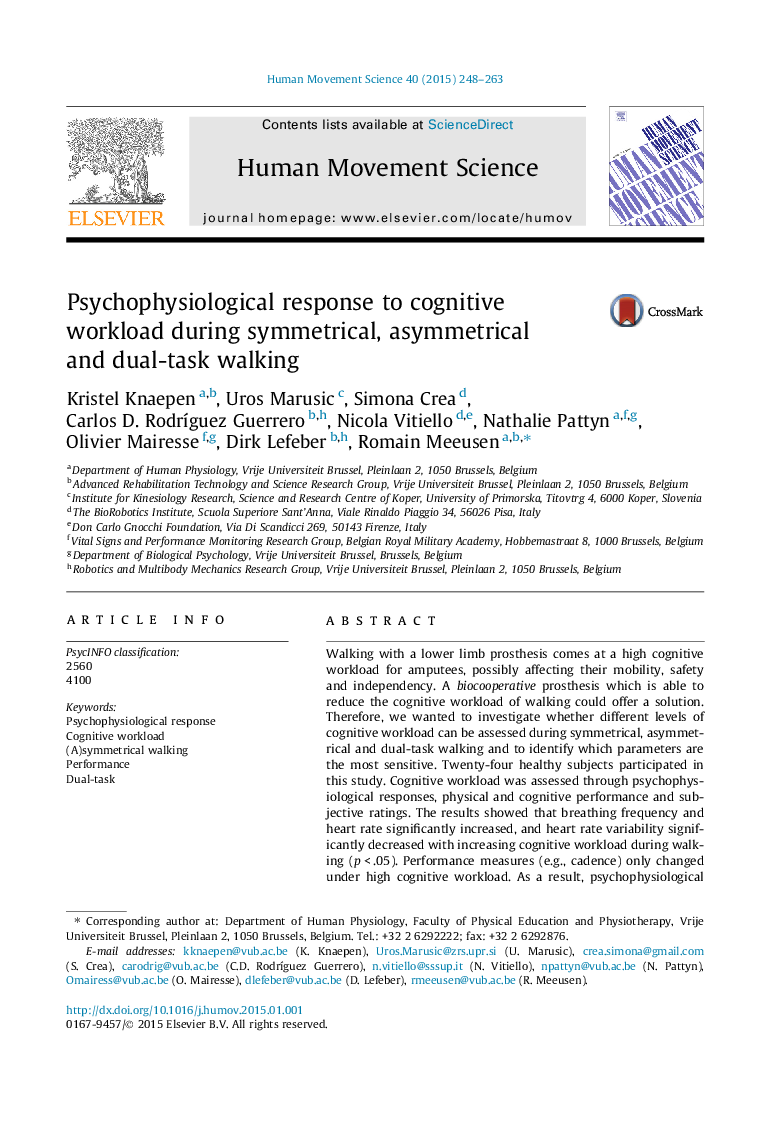| Article ID | Journal | Published Year | Pages | File Type |
|---|---|---|---|---|
| 7292114 | Human Movement Science | 2015 | 16 Pages |
Abstract
Walking with a lower limb prosthesis comes at a high cognitive workload for amputees, possibly affecting their mobility, safety and independency. A biocooperative prosthesis which is able to reduce the cognitive workload of walking could offer a solution. Therefore, we wanted to investigate whether different levels of cognitive workload can be assessed during symmetrical, asymmetrical and dual-task walking and to identify which parameters are the most sensitive. Twenty-four healthy subjects participated in this study. Cognitive workload was assessed through psychophysiological responses, physical and cognitive performance and subjective ratings. The results showed that breathing frequency and heart rate significantly increased, and heart rate variability significantly decreased with increasing cognitive workload during walking (p < .05). Performance measures (e.g., cadence) only changed under high cognitive workload. As a result, psychophysiological measures are the most sensitive to identify changes in cognitive workload during walking. These parameters reflect the cognitive effort necessary to maintain performance during complex walking and can easily be assessed regardless of the task. This makes them excellent candidates to feed to the control loop of a biocooperative prosthesis in order to detect the cognitive workload. This information can then be used to adapt the robotic assistance to the patient's cognitive abilities.
Related Topics
Life Sciences
Neuroscience
Cognitive Neuroscience
Authors
Kristel Knaepen, Uros Marusic, Simona Crea, Carlos D. RodrÃguez Guerrero, Nicola Vitiello, Nathalie Pattyn, Olivier Mairesse, Dirk Lefeber, Romain Meeusen,
